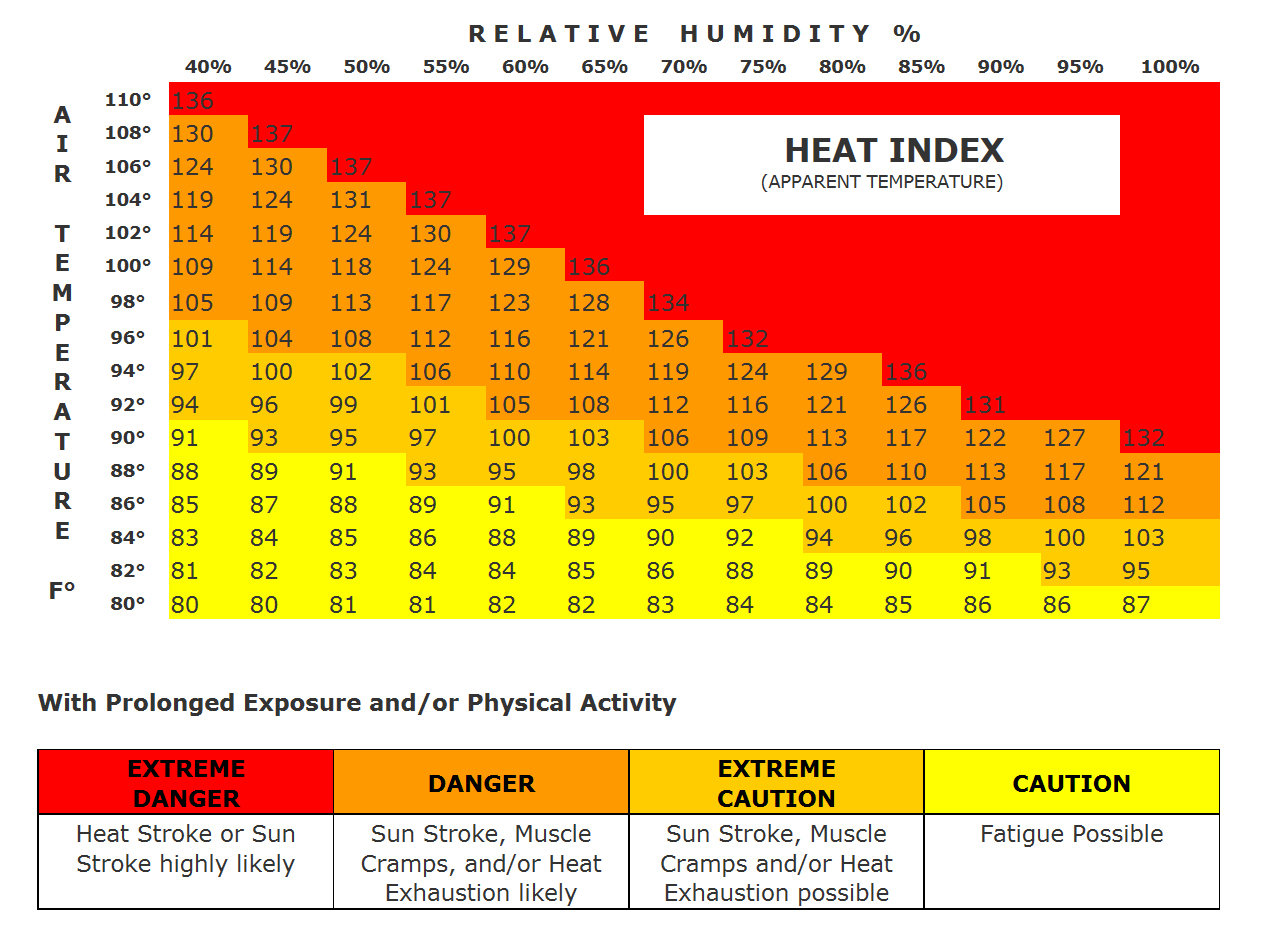Heat Wave
Each summer, millions of residents and tourists enjoy the warm weather and sunny beaches, but most are unaware of just how hot it can get in Florida. Surrounded by the Atlantic Ocean and the Gulf of Mexico, the state is always influenced by tropical moisture, especially in the summer.
The heat index is the "APPARENT TEMPERATURE" that describes the combined effect of high air temperature and high humidity. The higher this combination, the more difficult it is for the body to cool itself. If you work outdoors, it is critical that you remain aware of the heat index and take the appropriate precautions.

- NEVER LEAVE CHILDREN OR PETS IN A PARKED CAR: The temperature can raise to 135 degrees in less than ten minutes, which can cause death to children or pets. If you see a child or pet left unattended in a parked car, you should call 9-1-1 and alert authorities.
- SLOW DOWN. Strenuous activities should be reduced, eliminated, or rescheduled to the coolest time of the day. Individuals at risk should stay in the coolest available place, not necessarily indoors.
- DRESS FOR SUMMER. Lightweight, light-colored clothing reflects heat and sunlight, and helps your body maintain normal temperatures.
- DRINK PLENTY OF WATER. Drink plenty of fluids even if you don't feel thirsty. Persons who (1) have epilepsy or heart, kidney, or liver disease, (2) are on fluid restrictive diets, or (3) have a problem with fluid retention should consult a physician before increasing their consumption of fluids.
- DON'T DRINK ALCOHOLIC BEVERAGES.
- DON'T TAKE SALT TABLETS UNLESS SPECIFIED BY A PHYSICIAN. Persons on salt restrictive diets should consult a physician before increasing their salt intake.
- Spend more time in air-conditioned places. Air conditioning in homes and other buildings markedly reduces danger from the heat. If you cannot afford an air conditioner, spending some time each day (during hot weather) in an air conditioned environment affords some protection.
- Don't get too much sun. Sunburn makes the job of heat dissipation that much more difficult.
- Current Temperature Map of Florida
- Current Heat Index Map of Florida
- Current Watches & Warnings for Florida
It is NEVER safe to leave a child, disabled person or pet locked in a car, even in the winter. If you have a toddler in your household, lock your cars, even in your own driveway. Kids play in cars or wander outside and get into a car and can die in 10 minutes! A reported 25 children died in hot cars in 2020. To see the latest information for 2021, go to this link. Deaths routinely are reported as early as April and tragedies continue into December in southern states.

